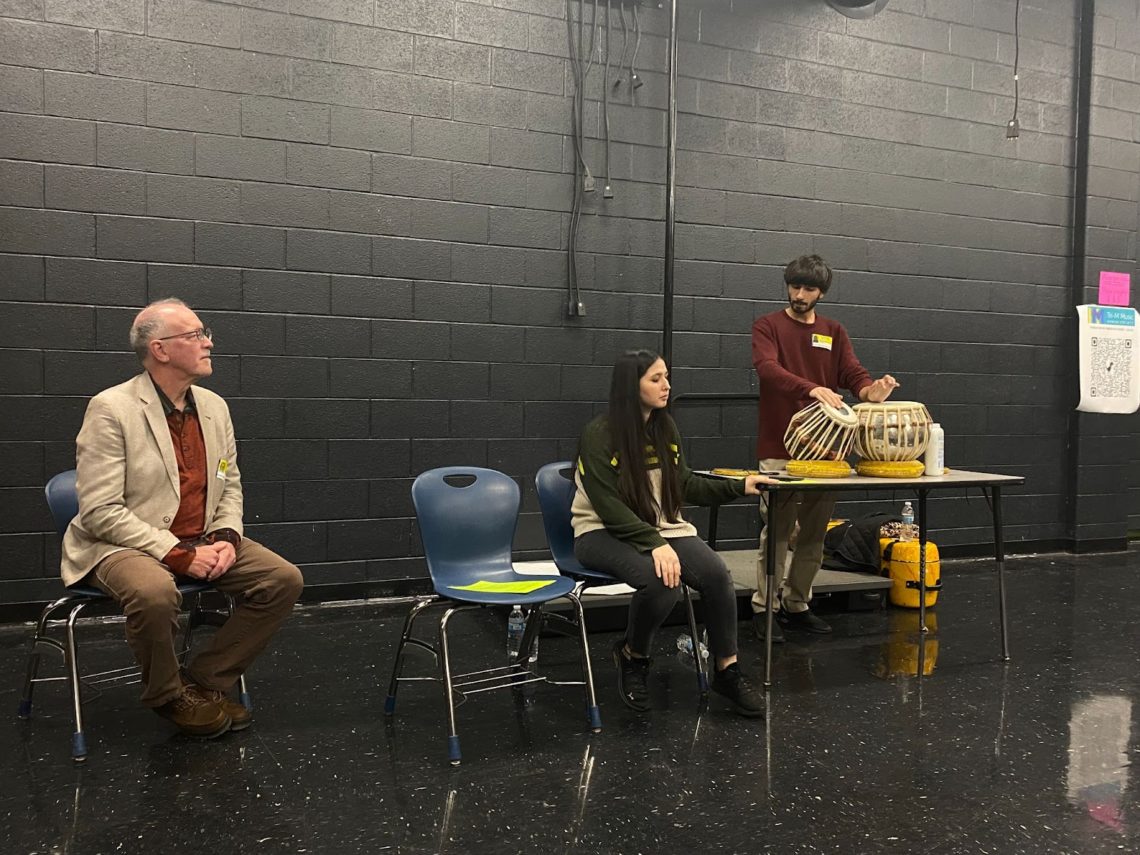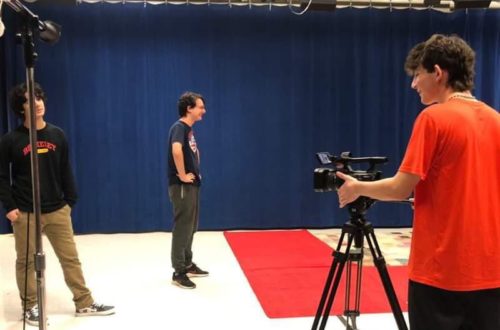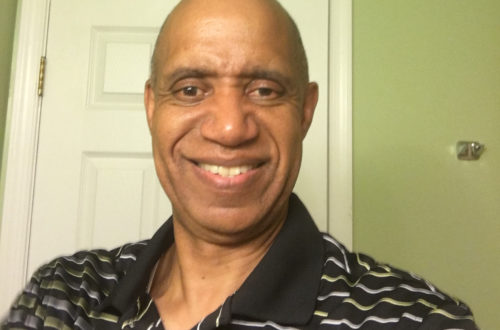ACHS hears the story of Afghanistan’s first public female musical conductor.
Salma El Gourchal, Zahra Rahimi
Staff Writers
Threatening to be killed over a dream is an outrageous concept for many, especially in the West. But for Negin Khpalwak and many others in Taliban-controlled Afghanistan, it is a reality. Khpalwak is a 25-year-old hailing from the rural province of Kunar, Afghanistan. She is the first female conductor to come out of Afghanistan and has traveled the world conducting different musical groups from Switzerland to the United States. She has also toured across Europe and India as the conductor for Afghanistan’s first all-female orchestra, Zohra, which is revered as a symbol of a progressive, modern Afghanistan. Behind all of this success, Khpalwak’s career choice made her risk many things, one of them being her life. Theogony was present at an event held at ACHS where she came to speak about her career and how her life took a 180-degree turn with the 2021 Taliban takeover.
Khpalwak’s conducting origins were in the Afghanistan National Institute of Music, located in the capital Kabul, where she took up an opportunity to conduct a class as a female student. She was met with an overwhelming boycott. Males dominated the school’s population, and they were unhappy that a girl, in a lower grade than them, was put in the position to lead the class.
“Most of the time, they would leave the room and stop playing whenever I went into the room,” Khpalwak said. On multiple occasions, this behavior led her to tears.
Khpalwak’s experience is not unique, and it is not specific to schools. For a woman, taking up a musical career is highly taboo and potentially fatal, especially after the Taliban placed a ban on playing music in public. Many people have threatened to take Khpalwak’s life if she keeps up her career in music. The Taliban, who at that point hadn’t fully taken over the country, has also started cracking down on musicians.
Under Taliban control, it is not unusual for people to live in the shadows of broken dreams. When the Taliban took over Afghanistan, some musicians left the country. Most of those who remained hid or burned their instruments alongside their hopes and dreams so the Taliban would not discover them. Khpalwak shared the story of a 17-year-old boy who was brutally murdered by the Taliban for performing music for his brother’s wedding. In October 2021, three were killed at a wedding party by men reported to be Taliban members. In August 2021, folk singer Fawad Andarabi was executed by the Taliban.
Khpalwak recalled the encouraging words her father told her when it seemed like the whole world was against her. “Don’t stop, and even if you are killed this way, you will be in history. You are opening the way for the next generation.”
While touring in India, Khpalwak married Hamid Habib Zada, a tabla player from Herat, Afghanistan who has been playing the instrument since he was eight years old. The tabla is a traditional Afghani instrument made with either a wood or copper base wrapped in animal skin. Tabla players learn from rhythms, tempos and beats given orally by teachers.
Habib Zada has played at various events, including weddings and private parties, in Afghanistan and around the United States alongside singers and other musicians. He has also played in international festivals, including two in Turkmenistan.
In August 2021, the Taliban took control of Afghanistan. Khpalwak, Habib Zada and their daughter had to flee immediately. American soldiers at the airport initially denied Habib Zada a seat on one of the planes, but Khpalwak was stern with the soldiers and threatened to stay.
“If you can’t let my family on, I will stay in Afghanistan,” she recalled saying. Eventually, Habib Zada was allowed on.
The plane took them to Washington, D.C. Sixty to seventy thousand refugees, including Khpalwak and Habib Zada, came from Afghanistan to the D.C. area, fleeing the Taliban and their strict, cruel regime.
Khpalwak described her assimilation into the United States as a tough journey. She explained that her upbringing in an American-operated orphanage helped her acclimate to the United States. She recalled the open-mindedness the American teachers had and how approachable they were. She had a sense of understanding of the American ideology which helped the assimilation flow just a bit easier. Although there was a struggle in adjusting to staying in the United States, which she had visited before the invasion as a conductor, she remained optimistic. “It’s different touring in America than [it is] living [here]…It’s hard. We are trying, and we hope to learn everything”.
After arriving, Khpalwak met Maestro James Ross through a mutual friend. Maestro Ross is the musical director of the Alexandria Symphony Orchestra (ASO) and is presently the Orchestra Director of the National Youth Orchestra – USA at Carnegie Hall.
Maestro Ross was already familiar with Khpalwak and her musical journey. A former student of his from a 2-year teaching stint at the University of Maryland included her in a thesis.
With the help of Ross, Khpalwak and her family adjusted smoothly to life in America. Through connections, Khpalwak and Habib Zada were introduced to people who were considerate enough to help pay for their rent for a year and helped them get a new car.
Negin Khpalwak and Hamid Habib Zada are part of the Alexandria Symphony Orchestra. Khpalwak specializes in conducting and Habib Zada in playing the Tabla.
Both play a fundamental role in expanding ASO musically and culturally and in globalizing Afghan music.
Khpalwak plans to delve further into conducting, while Habib Zada has plans to study computer science alongside creating music.
Orchestra teacher Veronica Jackson, who leads the Tri-M Music Honors Society, organized the event. This event was held on November 4, 2022, in the black box theater to educate students, especially in the Music Honors Society, on Afghan music and culture due to the growing Afghan student population at ACHS. At its close, Jackson described the responsibility that comes with the privilege of living in the United States, especially close to Washington, D.C.
“Do well, be kind since you’re here. . . Think beyond yourself,” Jackson said.
Featured image: Maestro James Ross (Left), Negin Khpalwak (Center) and Hamid Habib Zada (Right) playing the Tabla. Theogony photo by Salma El Gourchal.






